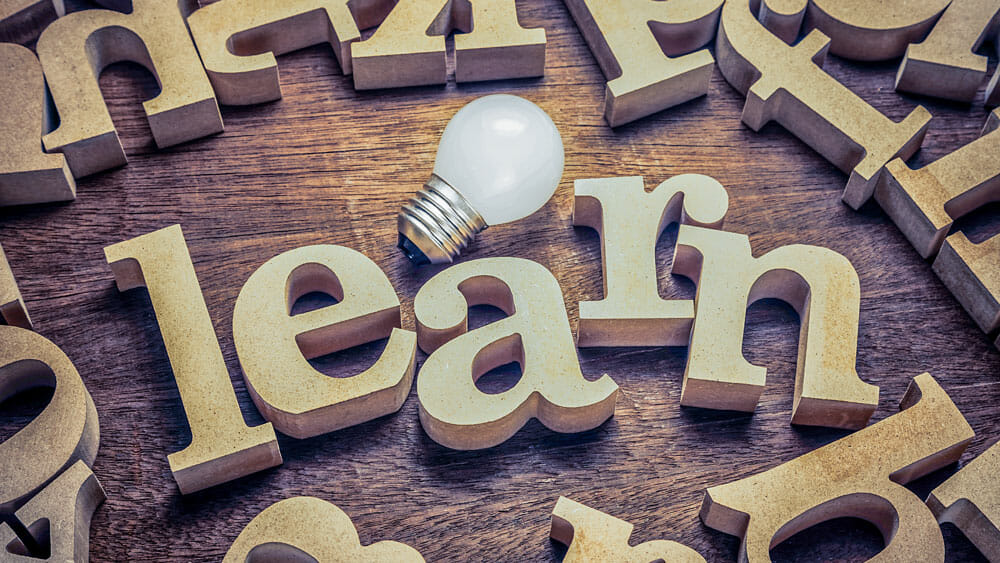Google defines learning as the acquisition of knowledge or skills through study, experience, or being taught. But this is not an adequate definition because it lacks the application or demonstration of the knowledge or skill. Learning isn’t just acquisition — it’s also about applying the knowledge or skill.
Let’s look at swimming. Can I read books on how to swim, watch videos, discuss the concept, research the skills required and say that I’ve learned how to swim? The answer is yes. I would certainly have ‘learned’ how to swim. I would have gained the knowledge and perhaps understood the skills required. But when I dive into the water would I be able to swim? Probably not.
Knowledge and understanding form part of the learning, but they’re not the whole story
Real learning requires the knowledge, understanding and skills to be put into practice. They need to be tested and practised to improve and embed, to ensure the learning shifts to deep learning.
If learning is more than just acquisition of knowledge and skills then how do we know if a child is learning?
There are three things we can do to answer this question. Researchers would call this triangulation of data. I call it common sense.
1. Ask the learner
I don’t mean the usual, “what did you learn at school today”? Because the reply is generally, “Nothing”. That doesn’t mean your child didn’t learn anything, it means the question is too big and they’re having trouble processing it. Teachers chunk information for students to process so they don’t get overloaded.
Be specific with your questions. Which subjects did you study today? Which one did you enjoy the most? What was the best thing about it? Did you learn anything new or that you thought was particularly interesting? Then follow your instincts and adjust your questioning depending on the answers you receive.
Engaged learners are aware of their progress and are usually quite adept at defining their learning successes. It’s equally important to discuss the challenges in order for the learner to be able to identify their weaknesses and to know how to work on them.
2. Ask the teacher or tutor
As a principal I was sometimes frustrated by parents who would say, “It’s been happening all year”. The “it” in the conversation could have been anything, but the point I always questioned was why they didn’t they contact the school earlier. I’m not suggesting you turn up at the school unannounced. Phone or email to discuss your questions, or make an appointment with the teacher or tutor to address whatever the concern might be.
This applies to questions about learning progress. If you’re uncertain as to whether your child is making progress, ask the question. But again, be specific. Ask the teacher to describe your child’s strengths as a learner and areas for improvement. Most importantly, ask what they need to do to improve.
Good teachers know their students and are able to discuss their strengths and challenges, as well as what they need to do to improve. They don’t rely on grades and marks, but discuss progress in terms of improved ability to complete certain tasks, respond to questions in depth, demonstrate knowledge on a particular subject, or read works of increasing complexity.
3. Assessment results
All schools utilise assessments and exams to measure student learning. Please don’t accept these marks at face value. The score or grade isn’t necessarily a measure of learning, but sometimes a reflection on how well the learner handled the task.
To ascertain learning in this situation requires questioning. What did your child do well? How could they improve on this result? Questions such as these reveal the underlying level of learning, your child’s understanding of the task and how to apply the knowledge their teacher is attempting to assess. They also act as opportunities to do better next time.
The key to knowing if learning has occurred:
The common thread between the three offerings above is questioning. It’s necessary to ask questions so that learning can be demonstrated. While a teacher can validate the learning that has taken place, it’s more important for your child to be able to articulate their learning experience.
Ask them to reflect on the activities they’ve completed and to define what they learnt. Meta-cognition — thinking about thinking — is an important skill that all learners need. This doesn’t just apply to schools or universities, but in the workplace as well. The ability to understand what has been learned and what needs to be learned next is invaluable. Once accomplished it’s simple to know if a child is really learning because they will be able to tell you.
Of course, as all teachers know, the real test of learning is whether your child can convey what they know. If you really want to know if a child is learning, ask them to teach you.
